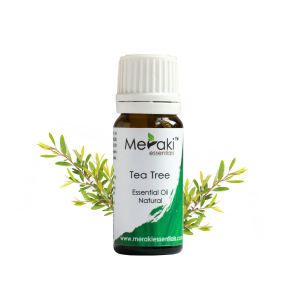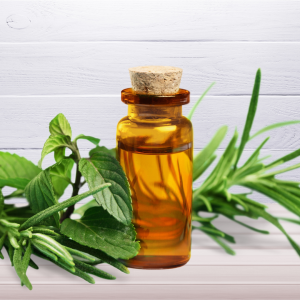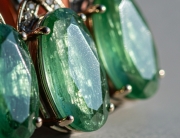In the realm of natural remedies and holistic health, tea tree essential oil stands out as a versatile and potent elixir. Extracted from the leaves of the tea tree, native to Australia, this essential oil has garnered acclaim for its broad spectrum of benefits, particularly in skincare and wellness. Praised for its antimicrobial, anti-inflammatory, and antiseptic properties, tea tree oil has become a staple in medicine cabinets around the globe. Whether it’s for acne, skin infections, or hair health, the uses of tea tree essential oil are both varied and effective, making it an indispensable ally in natural health and beauty routines.
The forthcoming article will delve into the history and origin of tea tree oil, laying the foundation for understanding its significance. It will further explore the key benefits of tea tea tree essential oil, from its effectiveness as an antimicrobial agent to its therapeutic uses for skin and hair care. Practical applications of this essential oil in modern home health care, including safety and precautions, will provide readers with a comprehensive guide to integrating tea tree oil into their wellness repertoire. With a focus on professional insights and Meraki Essentials’ commitment to purity, this piece aims to illuminate the myriad ways in which tea tree essential/tea tree oil can enhance one’s health and well-being, making it a must-have in any medicine cabinet.
History and Origin of Tea Tree Oil
Discovery
The origins of tea tree essential oil trace back to the indigenous Bundjalung people of eastern Australia. They recognized the healing properties of the leaves from the native tea tree and utilized them for medicinal purposes. This traditional knowledge was later discovered by European explorers in the 18th century, who observed these practices and began to use the leaves for similar purposes.
Traditional Uses
Historically, the leaves of the tea tree were crushed and inhaled to treat coughs and colds or applied as poultices for healing skin ailments and infections. Indigenous Australians made use of tea tree leaves by soaking them to make an infusion that was used to treat sore throats, skin ailments, and wounds. This traditional use underlines the antiseptic and antimicrobial properties that are now scientifically recognized in tea tree essential oil.
Commercialization
The commercial production of tea tree essential oil began in the 1920s after Arthur Penfold, an Australian chemist, published reports on its antiseptic properties, which were found to be several times more effective than the commonly used antiseptics of the time. This spurred the development of the tea tree oil industry in Australia, with the oil becoming widely used during World War II by Australian soldiers as a disinfectant and for treating tropical infections.
Key Benefits of Tea Tree Oil
Antibacterial Properties
Tea tree oil, known for its potent antibacterial effects, is a cornerstone in treating various skin conditions. It is particularly effective against acne, where it helps reduce bacterial presence and inflammation on the skin. Studies have shown that tea tree oil can eradicate bacteria within 4 to 6 hours of application, making it a powerful ally in acne management 1. Additionally, its use in mouthwash has been proven to reduce inflammation in conditions like gingivitis 1.
Antifungal Properties
The antifungal capabilities of tea tree oil extend to treating conditions such as athlete’s foot and nail fungus. Despite mixed results in its effectiveness against toenail fungus, tea tree oil has been found beneficial when used in combination with other treatments, enhancing their antifungal effects 2. This essential oil’s broad spectrum of activity includes combating dermatophytes and yeasts, which are common culprits behind various fungal infections 3.
Anti-inflammatory Properties
Tea tree oil’s anti-inflammatory properties are beneficial in soothing and treating skin inflammations, including those caused by mites around the eyes and eyelids, known as ocular demodicosis. Its application reduces the severity of symptoms and inflammation, providing relief 1. Furthermore, tea tree oil enhances the penetration of other active agents into the skin, promoting healing and reducing skin integrity issues in a dose-dependent manner 3.
Meraki Essentials remains committed to providing high-quality tea tree oil, ensuring that these therapeutic benefits are accessible for enhancing personal health and wellness.
Practical Uses in the Modern Medicine Cabinet
First Aid Applications
Tea tree oil is highly valued for its excellent antiseptic properties, making it a reliable choice for treating minor cuts and abrasions. To effectively use tea tree oil for first aid, one should clean the affected area with soap and water, then apply a mixture of tea tree oil and coconut oil (one drop of tea tree oil to one teaspoon of coconut oil). Covering the injury with a bandage after application helps protect the area, and repeating this treatment once or twice daily promotes healing 1.
Skin Care
Tea tree oil’s benefits extend significantly to skin care, where its antibacterial and anti-inflammatory properties make it effective in treating acne and soothing irritated skin. For acne management, a mixture of one part tea tree oil to nine parts water can be applied to the affected areas with a cotton swab one to two times daily. This regimen not only reduces bacterial activity but also soothes the skin, minimizing acne severity 1. Additionally, tea tree oil can help alleviate dryness and itching, providing relief from discomfort and enhancing skin appearance 4.
Read More: 10 Simple and Effective Ways to Use Tea Tree Oil for Skin and Hair
Oral Health
In the realm of oral health, tea tree oil serves as a potent antimicrobial agent that can be used in DIY dental care products like mouthwashes to combat plaque and freshen breath. However, due to its potential toxicity when ingested, it is crucial to use tea tree oil only in formulations that are meant to be spit out, such as toothpaste and mouthwash. A simple homemade mouthwash can be created by adding a drop of tea tree oil to a cup of warm water, ensuring a chemical-free alternative to commercial products. This mouthwash can effectively reduce oral bacteria and inflammation associated with conditions like gingivitis 1 5.
Safety and Precautions
Topical Use
Tea tree oil is widely recognized for its therapeutic benefits, but it must be used correctly to avoid skin irritation. When applying tea tree oil to the skin, it is crucial to dilute it properly. The National Association for Holistic Aromatherapy recommends a dilution of 1 to 5 percent tea tree oil in a carrier oil for general use, and 0.5 to 2.5 percent for sensitive skin or children’s skin 6. Undiluted tea tree oil can cause adverse reactions such as itching, stinging, burning, scaling, redness, and dryness 26.
Potential Side Effects
While tea tree oil is beneficial for many, it can also cause allergic reactions in some individuals, known as allergic contact dermatitis. This reaction may present as a red, swollen, and itchy rash 6. Moreover, serious side effects such as confusion, a lack of muscle control, and decreasing levels of consciousness may occur if tea tree oil is ingested 267. Additionally, there have been reports suggesting that repeated exposure to tea tree oil might lead to hormonal imbalances, such as the swelling of breast tissue in young boys 26.
Important Precautions
Meraki Essentials advises that tea tree oil should never be ingested due to its toxicity. Symptoms of tea tree oil poisoning can include severe reactions like ataxia and coma 7. For those with eczema or asthma, extra caution is advised as tea tree oil may exacerbate these conditions 6. Always store tea tree oil out of reach of children and pets to prevent accidental ingestion, which can be fatal 6. Before using tea tree oil, conducting a patch test on a small area of skin is recommended to ensure there is no allergic reaction 6. In case of adverse reactions, discontinue use immediately and consult a healthcare provider.
Conclusion
Tea tree essential oil, extracted from the tea tree native to Australia, stands as a testament to the power of natural health remedies. Meraki Essentials has certainly captured the essence of this powerful elixir, highlighting its myriad benefits in skincare, wellness, and household applications. From its antibacterial prowess in acne management to its role in oral health, tea tree oil has demonstrated an impressive capacity to enhance well-being naturally. The article has comprehensively showcased tea tree oil’s versatility, backed by historical insights and practical uses, solidifying its indispensability in modern medicine cabinets.
Exploring the realm of natural remedies further, Meraki Essentials encourages a deeper dive into the multifaceted uses of tea tree oil for both skin and hair care, offering practical and effective methodologies for everyday wellness. For those eager to explore more about leveraging this potent oil, discovering 10 simple and effective ways to utilize tea tree oil in daily routines can provide valuable insights. Embracing tea tree oil not only enriches health practices but also reinforces the commitment to sustainable, natural health solutions, promising a holistic approach to wellness that resonates with ancient traditions and contemporary needs alike.
FAQs
How is tea tree oil best stored?
Tea tree oil should be kept in a dark, cool place and stored in glass or steel containers. It is important to avoid contact with plastic, as tea tree oil can dissolve certain types of plastic.
What are the medical uses of tea tree oil?
Tea tree oil, also referred to as melaleuca oil, is derived from the leaves of the Australian tea tree through a process of steaming. It is primarily used topically due to its antibacterial properties. Common applications include treating acne, athlete’s foot, lice, nail fungus, and insect bites.
What are some applications of tea tree oil?
Tea tree oil can be used in various ways, including:
- As a wound dressing to kill bacteria and reduce inflammation by applying a few drops on the dressing.
- As a homemade mouthwash by adding 2 drops to a cup of water.
- As a natural remedy for dandruff.
- As an acne treatment.
- As a household cleaner.
When should tea tree oil not be used?
Tea tree oil should be avoided by individuals with eczema as it may exacerbate the condition. Additionally, caution is advised when inhaling tea tree oil for those who have asthma, as it could potentially worsen symptoms.
References
[1] – https://www.healthline.com/nutrition/tea-tree-oil
[2] – https://www.mayoclinic.org/drugs-supplements-tea-tree-oil/art-20364246
[3] – https://www.ncbi.nlm.nih.gov/pmc/articles/PMC8582737/
[4] – https://www.healthline.com/health/tea-tree-oil-for-skin
[5] – https://www.colgate.com/en-in/oral-health/nutrition-and-oral-health/tea-tree-oil-is-good-for-teeth
[6] – https://www.healthline.com/health/tea-tree-oil-side-effects
[7] – https://www.webmd.com/vitamins/ai/ingredientmono-113/tea-tree-oil








Leave A Comment